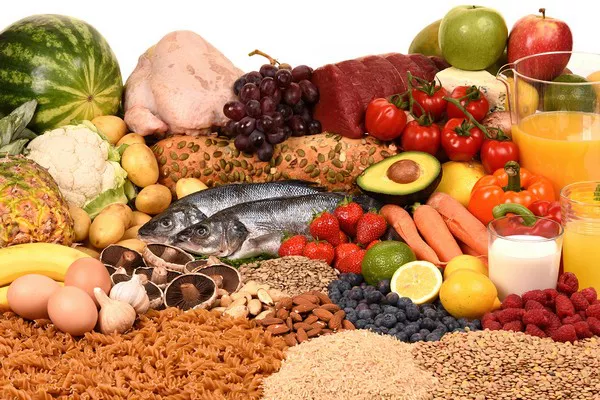Protein is a crucial macronutrient for athletes, especially those engaged in weightlifting and strength training. The body relies on protein to build and repair tissues, support immune function, and synthesize enzymes and hormones. When it comes to athletes, protein plays an even more significant role in optimizing performance and aiding in post-exercise recovery. In this article, we will explore the importance of protein for weightlifting athletes and discuss how much protein they should consume to maximize their training gains.
Understanding Protein and its Role in the Body
Proteins are made up of amino acids, which are the building blocks of our body. There are 20 different amino acids, nine of which are essential, meaning they cannot be synthesized by the body and must be obtained through the diet. Protein is responsible for numerous vital functions in the body, including muscle repair and growth, enzyme production, and immune system support.
For weightlifting athletes, protein is of particular importance due to the high mechanical stress placed on the muscles during intense training sessions. Engaging in weightlifting exercises leads to the breakdown of muscle fibers, and protein is essential for repairing and rebuilding these damaged tissues. Additionally, protein plays a critical role in muscle protein synthesis, which is the process by which new muscle proteins are created, promoting muscle growth and adaptation.
Protein Requirements for Weightlifting Athletes
Determining the optimal protein intake for weightlifting athletes is crucial for supporting their training goals. The recommended daily protein intake for sedentary individuals is around 0.8 grams per kilogram of body weight. However, athletes, particularly those involved in intense resistance training, have higher protein requirements due to their increased muscle protein turnover.
The International Society of Sports Nutrition (ISSN) recommends a protein intake range of 1.4-2.0 grams per kilogram of body weight for athletes engaged in resistance training. This range provides a sufficient amino acid pool to support muscle repair, growth, and adaptation. However, individual protein requirements may vary based on factors such as training volume, intensity, and overall calorie intake.
Timing and Distribution of Protein Intake
In addition to the total protein intake, the timing and distribution of protein consumption throughout the day also play a role in optimizing muscle protein synthesis and recovery. Research suggests that consuming protein-rich meals or snacks every 3-4 hours may be beneficial for maintaining a positive protein balance.
Furthermore, it is recommended to consume a high-quality protein source within the first few hours after a weightlifting session to maximize muscle protein synthesis. This post-workout meal or snack should ideally contain 20-40 grams of protein, depending on the individual’s body weight and training goals. Examples of high-quality protein sources include lean meats, poultry, fish, dairy products, eggs, and plant-based proteins such as legumes, tofu, and tempeh.
Protein Quality and Sources
The quality of dietary protein is another important consideration for weightlifting athletes. Proteins from animal sources, such as meat, fish, poultry, eggs, and dairy products, are considered complete proteins as they contain all essential amino acids in the right proportions. These sources provide a wide range of essential amino acids necessary for muscle repair and growth.
For athletes following a vegetarian or vegan diet, obtaining adequate protein intake and ensuring a complete amino acid profile may require more attention. Combining different plant-based protein sources, such as legumes, grains, nuts, and seeds, can help achieve a complete amino acid profile. Additionally, plant-based protein supplements, such as pea protein or soy protein, can be used to enhance protein intake and quality.
Protein and Weight Management
Weightlifting athletes often have specific body composition goals, which may include gaining lean muscle mass or reducing body fat levels. Protein can play a crucial role in these goals, as it has been shown to increase satiety, boost metabolism, and preserve lean muscle mass during periods of calorie restriction.
When aiming to gain muscle mass, weightlifting athletes may benefit from a slightly higher protein intake within the recommended range. On the other hand, when trying to reduce body fat, maintaining a moderate to high protein intake can help preserve muscle mass while creating an energy deficit.
Potential Risks and Considerations
While protein is essential for weightlifting athletes, it is important to consider potential risks and individual factors when determining protein intake. Excessive protein consumption, particularly from low-quality sources, may strain the kidneys and liver over time. However, for healthy individuals with no pre-existing kidney or liver conditions, moderate to high protein intakes within the recommended range are generally safe.
Athletes with specific dietary restrictions, such as food allergies or intolerances, may need to carefully plan their protein sources to ensure optimal intake. Consulting with a registered dietitian or sports nutritionist can help athletes personalize their protein intake based on their unique needs and goals.
Conclusion
Protein plays a crucial role in optimizing performance and aiding in post-exercise recovery for weightlifting athletes. Consuming an adequate amount of high-quality protein isessential for supporting muscle repair, growth, and adaptation. The recommended protein intake for weightlifting athletes engaged in resistance training falls within the range of 1.4-2.0 grams per kilogram of body weight. Timing and distribution of protein intake throughout the day, as well as the quality and sources of protein consumed, also contribute to maximizing muscle protein synthesis and recovery.
Weightlifting athletes should aim to consume protein-rich meals or snacks every 3-4 hours to maintain a positive protein balance. Additionally, consuming a high-quality protein source within the first few hours after a workout can enhance muscle protein synthesis. Animal-based sources such as lean meats, poultry, fish, eggs, and dairy products are complete proteins that provide all essential amino acids. For vegetarian or vegan athletes, combining different plant-based protein sources and incorporating plant-based protein supplements can help achieve a complete amino acid profile.
In conclusion, protein is a vital component of the diet for weightlifting athletes. Adequate protein intake supports muscle repair, growth, and adaptation, optimizing performance and aiding in post-exercise recovery. By consuming protein within the recommended range, timing protein intake strategically, choosing high-quality protein sources, and considering individual factors, weightlifting athletes can maximize the benefits of protein for their training and overall well-being.
[inline_related_posts title=”You Might Be Interested In” title_align=”left” style=”list” number=”6″ align=”none” ids=”3092,3090,3088″ by=”categories” orderby=”rand” order=”DESC” hide_thumb=”no” thumb_right=”no” views=”no” date=”yes” grid_columns=”2″ post_type=”” tax=””]


































